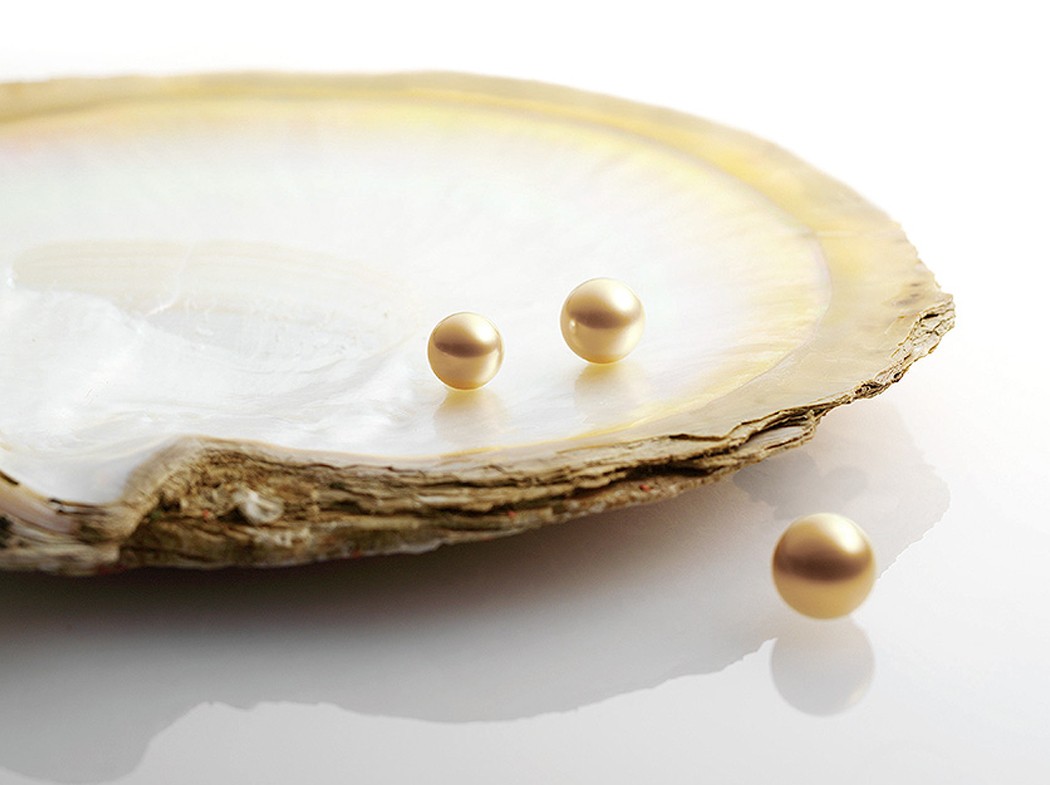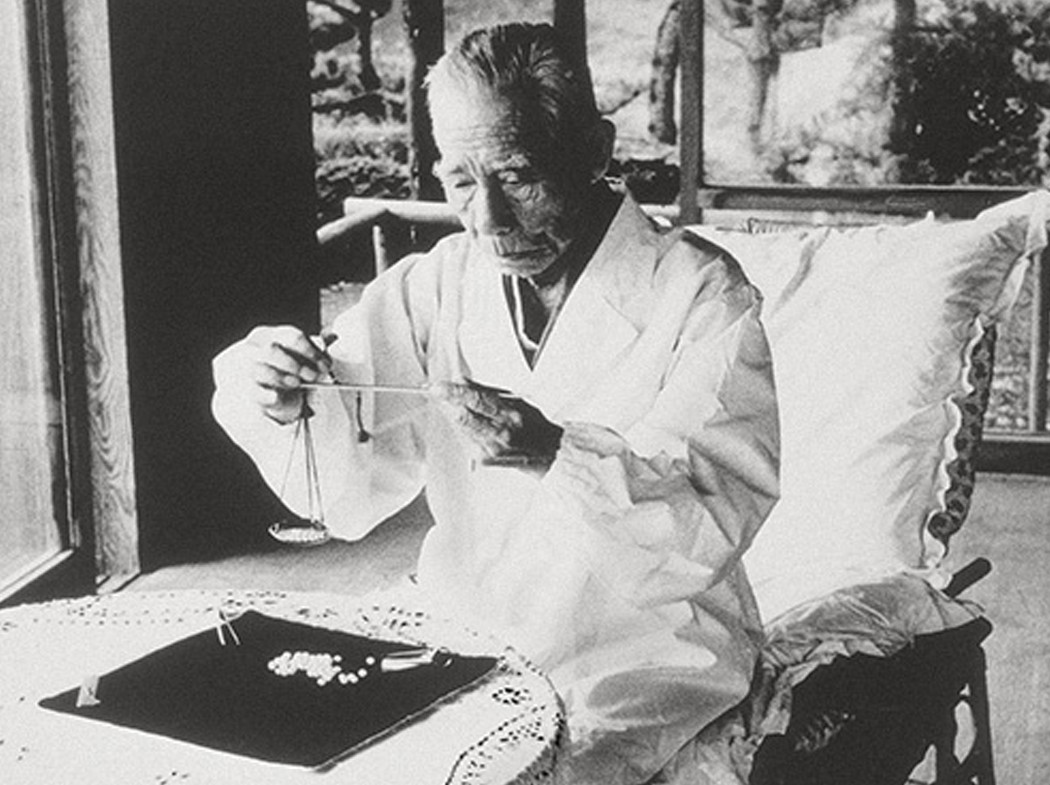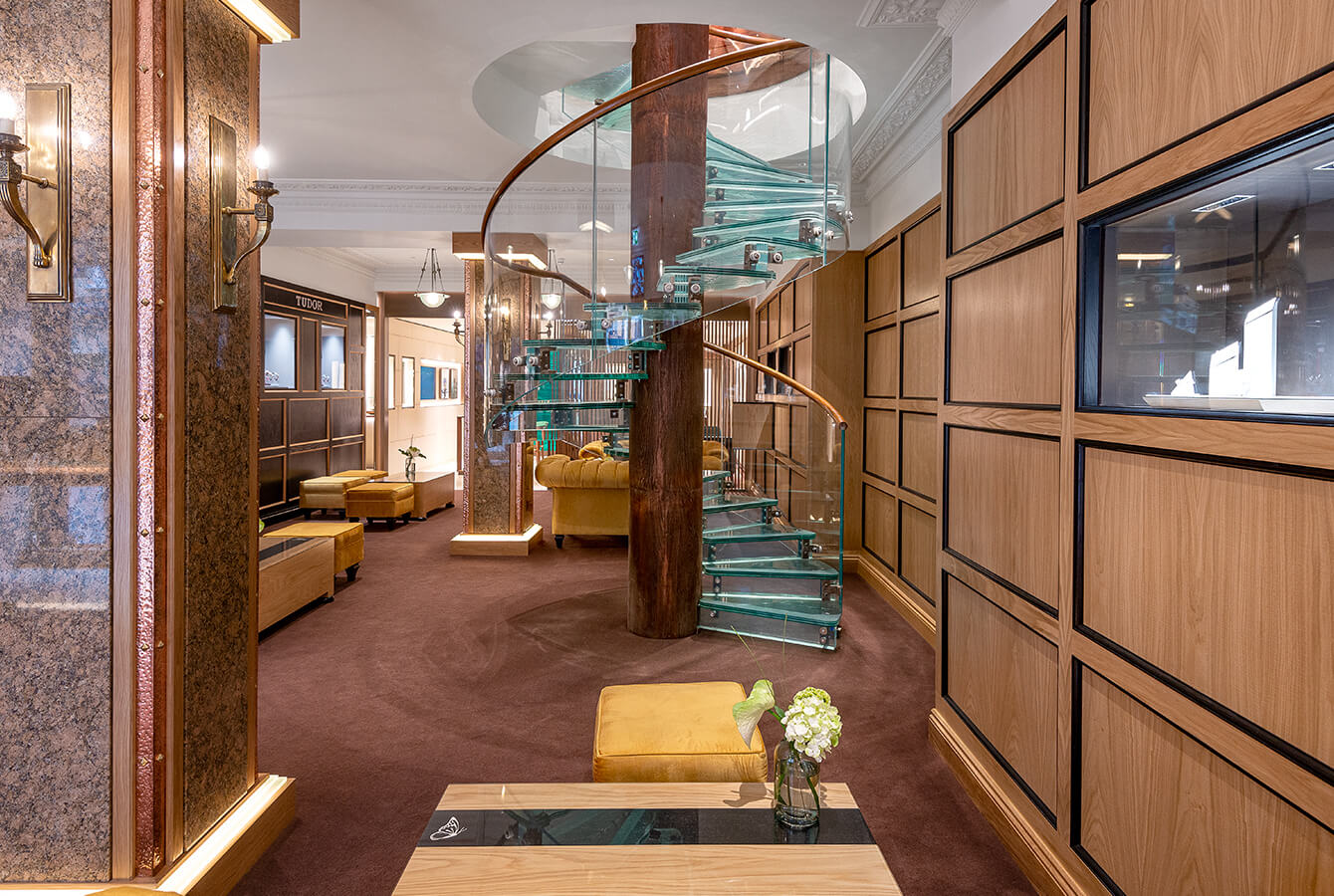From generation to generation, pearls have been synonymous with classic beauty and elegance. Our showrooms in Wilmslow and Guildford act as the perfect environment to explore the Mikimoto collection and learn more about the brand.
Pearls are a natural gem created by a living organism. They have been around for many years and have been associated as a symbol of wealth, status, and a form of currency. Pearls have also been linked to royalty since Henry VIII and Elizabeth I and are, today, commonly used to signify 30 years of marriage. Pearls are a perfect symbolisation for 30 years of commitment to a loved one, an exceptional milestone to reach in a lifetime.
Mikimoto Pearls
Luxurious and elegant, Mikimoto use cultured pearls within a range of styles to express each individuals’ unique look. In the wild, less than one in a thousand oyster shells may produce a pearl during their lifetime, making natural pearls extremely rare and deemed as a luxury only for the wealthy. Kōkichi Mikimoto, founder of Mikimoto, decided to try to culture his own pearls and successfully achieved culturing a semi-spherical pearl in 1893. Over 120 years later Mikimoto pearls are still striving to update the tradition and continue to adorn the necks of all women around the world with pearls.
Mikimoto has dedicated a significant amount of time to conserve and restore wild oyster habitats and increase their population. They have also enhanced the wellbeing of the environment by constant development and deploying zero-emission solutions for today’s pearl farming industry, a truly exceptional achievement.
Kōkichi Mikimoto sent skilled craftsmanship to Europe to learn the latest design techniques and styles, including Art Deco and Art Nouveau. His intentions were to blend traditional Japanese craftsmanship with European manufacturing techniques to create the distinctive Mikimoto style. Kōkichi succeeded in building the foundation for modern jewellery production in Japan and since, across the world. The incredible designs captured by Mikimoto do not just display the pearls for their natural beauty, but create eye-catching creations to establish such a presence in the cultivation, processing and sales of pearls.
The Formation of Cultured Pearls
The formation of a cultured pearl involves an irritant, such as a tiny bead, being inserted into the oyster shell. The oyster then creates layers of nacre, forming around the irritant, to create the pearl. This process is the same as a natural pearl formation beside the helping hand from the human. Each pearl is unique and available in a variety of colours. Therefore, it is mainly down to the mollusc, water temperature, diet, and pollutants to allow for the best growing conditions. After the procedure, the oysters are returned to the saltwater or freshwater, where they are submerged. Pearl technicians monitor the feeding conditions and water temperatures to ensure the finest pearls are formed. Culturing pearls can take between one to three years before the pearl is ready.
The pearls are then each hand-selected to ensure only the finest are used. Once they have been through this process they are cleaned, soaked, and sorted. Lustre, surface perfection, colour, shape and size are all taken into consideration when the pearls are selected. The lustre is the amount of light reflected from the pearls surface. Blemishes and tiny marks can be found on cultured pearls and are characteristics of the pearl, however the fewer marks and blemishes found on the pearl, the higher quality and value. When the pearls get checked for colour, the main factors are the richness and even colour distribution. Given the oyster type, they will produce a variety of shades and the rarer the shade, the more valuable the pearl. Perfectly round pearls are rarer and therefore, the most valuable. Other shapes such as pear, oval and button are also favoured because of their uniqueness.
Pearl Care
In order to care for your pearls, Prestons would recommend applying make-up and hair styling products first before putting any pearl jewellery on. Pearls are vulnerable to acidic or alkaline substances such as perfume and hairspray and therefore it is advised that this is dry first. The lustre of pearls can be dulled by perspiration, so it is recommended to return the pearls to your jewellery box after carefully wiping them with a soft cloth after use. Mikimoto pearl necklaces are strung with the finest silk thread and therefore it is recommended that pearls are restrung each year to ensure the string doesn’t loosen. Over time, pearls slightly change in appearance, however if good care is taken, they will stand the test of time. If you would like further information on how to care for your pearls visit our dedicated jewellery care page here or the dedicated Mikimoto pearl care page, here.
Over the past 150 years, each of our dedicated team members have offered exceptional service and value and generations of families have become customers and many, have now become friends. Each of our teams look forward to helping you celebrate the most important moments of your life and welcoming you to Prestons.
If you would like further information on Mikimoto, visit our dedicated page on our website here. Alternatively, if you would like to contact us about Mikimoto, our jewellery collections or our services, please contact us here.


